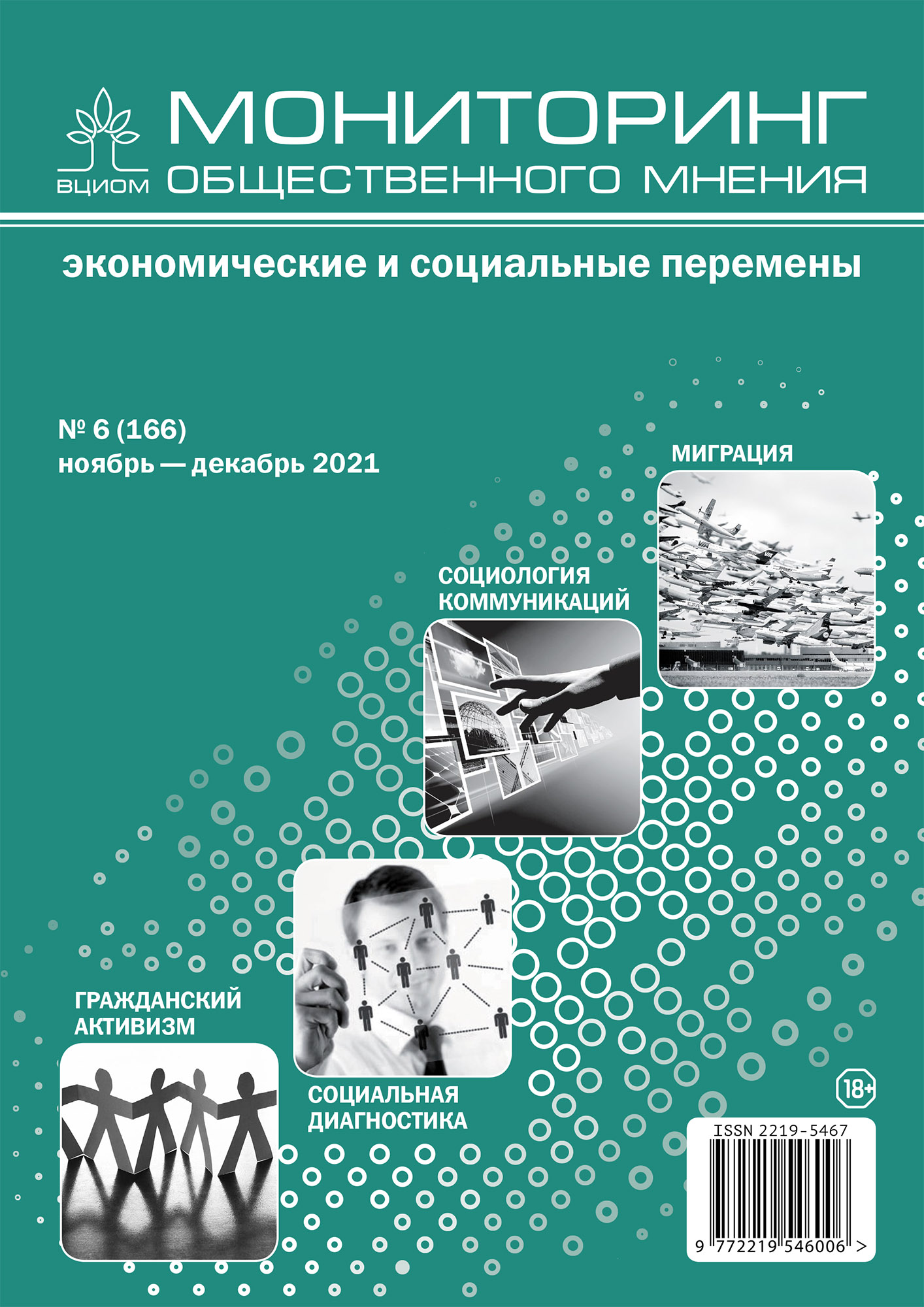Общественный активизм российских граждан в офлайн- и онлайн-пространствах
DOI:
https://doi.org/10.14515/monitoring.2021.6.2042Ключевые слова:
общественный активизм, социальная активность, политическая активность, гражданское участие, политическое участие, социальные сети, конверсия активности, онлайн-активизм, офлайн-активизмАннотация
В статье представлены результаты исследования специфики общественной активности россиян в онлайн- и офлайн-средах. Цель работы — выявление взаимосвязи социальных и политических действий российских граждан в офлайн- и онлайн-пространствах. Методология исследования опирается на сетевой и необихевиористский подходы, а также на концепции социальных движений и политического участия. Эмпирическая основа работы — онлайн-опрос по квотируемой репрезентативной выборке (N = 1600). Автор оценивает интенсивность, масштаб, характер, направленность, факторы и эффекты вовлеченности граждан в общественную активность, а также сегментирует российских граждан по политическим установкам лояльности, оппозиционности и отрешенности.
В целом среди российских граждан выявляются слабая общественная консолидация и низкая интенсивность общественного участия, преобладает разобщенность в готовности к совместным действиям. В общественных установках население проявляет выраженную отстраненность от политической активности и расположенность к социальной активности. Граждане склонны объединяться прежде всего для решения проблем экологии, защиты животных и низкого уровня жизни. Более значимыми мотивами общественной активности, чем материальные стимулы, выступают польза другим людям, нравственный долг, общее дело, самореализация, влияние на власть, общение с людьми и получение нужных навыков. В общественной онлайн-активности преобладают кликтивисткие формы, а офлайн граждане склонны участвовать в действиях по решению возникающих проблем на основании самоорганизации. Пассивное поведение большинства граждан сдерживает конверсию общественной активности из онлайн- в офлайн-пространство.
Выявленные корреляции показывают наличие связи между онлайн- и офлайн-предпочтениями при выборе субъектов взаимодействия для реализации гражданских инициатив. Интенсивность использования цифровых каналов коммуникации для реализации общественной активности связана с частотой участия в действиях офлайн, направленных на решение социальных и политических проблем. Внутренняя установка граждан на реализацию общественных инициатив предопределяет активность использования онлайн коммуникаций для более эффективных действий в офлайн. Значимая корреляция выявлена между социальной и политической активностью граждан. При этом частота подталкивающих к действиям информационных сообщений оказывает слабое влияние на общественную активность граждан.
Благодарность. Статья подготовлена по результатам исследований, выполненных за счет бюджетных средств по государственному заданию Финансового университета.
Загрузки
Опубликован
Как цитировать
Выпуск
Раздел
Лицензия
Copyright (c) 2021 Мониторинг общественного мнения: экономические и социальные перемены

Это произведение доступно по лицензии Creative Commons «Attribution-NonCommercial-ShareAlike» («Атрибуция — Некоммерческое использование — На тех же условиях») 4.0 Всемирная.






